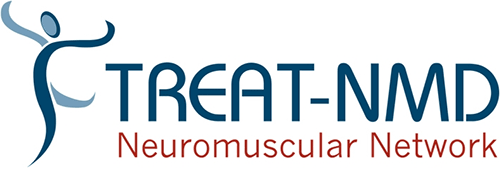This study underlines the importance of data collection via patient registries and the critical role of multicenter collaboration in the rare disease field. – Zaida Koeks, MD & Jan Verschuuren, MD
Researchers are searching for therapies that might slow the progression of Duchenne muscular dystrophy, while also investigating genetic and other approaches to disrupt the underlying disease mechanism. Examining data from the large TREAT-NMD Duchenne muscular dystrophy database, investigators were able to confirm that corticosteroid treatment can delay some of the clinical effects of Duchenne and that there is greater variability among patients in the progression of the disease than previously reported. Their findings appear in the Journal of Neuromuscular Diseases.
A lack of comprehensive information on the natural history of Duchenne has posed significant barriers to applying meaningful outcome measures to clinical trials.
Established in 2007, TREAT-NMD (a network of centres of excellence in neuromuscular conditions) has created a federated, worldwide registration system of people living with Duchenne.
“The UK DMD Registry is part of the TREAT-NMD global registry and the anonymous data gathered from patients in 31 countries has allowed investigators to confirm clinical effects of Duchenne providing vital information for future clinical trials. Their findings were published in the Journal of Neuromuscular Diseases.
The results of the analysis demonstrate that the use of steroids extend non-ambulation to the average age of 13 years compared to non-steroid treated at average of 10 years. The lungs, heart and spine in 20 year old Duchenne patients also benefit from steroid treatment. Once again the importance of patient registries is highlighted”. – Angela Stringer, DMD Registry Curator.
About the investigation
Seeking to determine the effect of corticosteroids using data from the TREAT-NMD Duchenne global database, investigators analysed data on more than 5000 genetically confirmed people living with Duchenne from 31 countries. They were able to identify the positive effects of corticosteroids on major clinical outcomes, including loss of ambulation, ventilation, scoliosis surgery, and to a lesser extent cardiomyopathy.
-
Loss of ambulation in non-steroid treated patients happened at 10 years of age on average and in corticosteroid treated patients at an average age of 13 years old.
-
Corticosteroid treated patients were less likely to need scoliosis surgery or ventilatory support and there was a mild cardioprotective effect of corticosteroids in the older patient population (aged 20 years and older).
This study demonstrates that the association of corticosteroid treatment with improved clinical outcomes can be observed in the “real world” across many different countries with different healthcare settings and ethnic backgrounds, and regardless of a specific corticosteroid regime.
Greater mutation-specific variability
Historically, it was thought that all living with Duchenne experience a similar clinical progression of predictable outcomes for muscle function and survival. This study shows that there is greater mutation-specific variability in clinical progression and outcomes than previously reported, suggesting that future clinical trials and therapeutic approaches should factor in this variability.
“Real world data on long-term clinical outcomes in DMD confirm and extend the evidence obtained from clinical trials and observational studies, which by their very nature are often restricted in study duration, number of patients followed, and geographical coverage,” explains Hanns Lochmüller, MD, PhD, who carried out the research during his tenure at the Institute of Genetic Medicine, Newcastle University, UK. “This study effectively removes some of the uncertainty about the long-term treatment benefit of steroids in DMD. Because of the high number of observations, significant differences in clinical outcomes were observed between sub-groups of patients carrying specific mutations, which may lead to better prognostic predictions for families and to more research into the underlying cellular and molecular events.“
The global DMD registry can serve as an important source of information, allowing the generation of disease specific long-term data and facilitating comparison of different therapeutic approaches which can be important for future clinical trials and improvement of standards of care.
According to lead author Zaida Koeks, MD, and co-author Jan Verschuuren, MD, PhD, both of Leiden University Medical Center, Department of Neurology, Leiden, The Netherlands, “This study underlines the importance of data collection via patient registries and the critical role of multicenter collaboration in the rare disease field. Our data may help to power future clinical trials by highlighting the need for trial design to take into account the heterogeneity of the DMD population including patient age, mutation type, and corticosteroid background.”
The DMD Registry (UK)
In 2006 we set up our DMD Registry; the first patient registry for Duchenne in the UK and one of the first for neuromuscular conditions in the world. It is important in recruiting for clinical trials.
Hear more about The DMD Registry
YouTube Video https://www.youtube.com/watch?v=p_NwQ4WCbDM


 Implementation plans for the UK Strategy for Rare Diseases
Implementation plans for the UK Strategy for Rare Diseases
